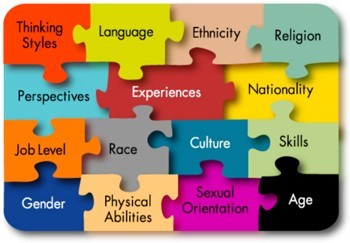Cultural Intelligence in Business: Why Businesses That Ignore Local Culture Struggle to Survive
Understanding local culture isn’t optional. It’s the foundation for building brands that thrive beyond borders.

When a business expands beyond its original environment, it steps into a different world. A world that is shaped by local culture, behaviour, and values. Unfortunately, many Nigerian startups and international brands underestimate this powerful concept — cultural intelligence in business.
They believe that whatever marketing strategies that worked in Lagos will automatically work in Ilorin, or that strategies that succeeded in South Africa will find easy acceptance in Nigeria.
But the experiences of certain businesses have proven that culture has its own rules, and any brand that fails to understand them sets itself up for an early exit in the marketserve.
This is where cultural intelligence in business comes in. It’s the ability to understand and adapt to the beliefs, habits, and preferences of the people you’re trying to serve in a specific place. In Nigeria, a country with over 250 ethnic groups, multiple languages, and distinct social behaviours, cultural intelligence is a survival skill for any business.
Two Case Studies
Shoprite: When Western Retail Meets Local Reality
When Shoprite, the South African retail giant, entered Nigeria in 2005, it looked like there was not going to be any glitch. And because Nigerians loved shopping, they were beginning to embrace the idea of modern retail experiences.
Families always looked forward to shop during festive periods and even on Sundays. For years, Shoprite dominated the supermarket space, expanding into major cities in Nigeria like Lagos, Ibadan, Ilorin, and Enugu.
However, beneath the glamorous western retail experiences and imported goods, cracks began to show. At its core, Shoprite’s business model was deeply rooted in South African shopping culture, one that assumed steady electricity, predictable logistics, and customers who preferred one-stop shopping in malls.
But Nigeria’s local reality was very different. Nigerians could only go with the flow for a moment. Most Nigerians still valued the convenience of open markets, where they could negotiate prices, buy in small quantities, and maintain personal relationships with traders. Even in urban areas, the “mall experience” didn’t replace the deep cultural habit of bargaining. All these, Shoprite failed to adapt.
Instead of finding ways to blend the modern retail model with Nigerian shopping culture, it continued to push a one-size-fits-all experience.
This gave rise to some of their competitions, Ebeano and Justrite. They understood the market better as they offered flexible pricing, local goods, and a warmer shopping experience that felt closer to home. The one every Nigerian enjoys.
By 2020, Shoprite announced its plan to exit Nigeria, citing economic challenges and operational issues. But deep down, it was because it failed to adapt to the consumers’ shopping habits.
Let’s move on to the second case study.
Konga: A Digital Vision That Forgot Local Trust
In 2012, Konga entered the Nigerian e-commerce market with a vision to revolutionise shopping in Africa. Its platform was sleek, its marketing loud, and its ambition clear. But despite all the hype, Konga faced an uphill battle from the start.
Why and what happened? The answer is simple: It underestimated the importance of trust in a society that has been dealing with cash for the longest.
At the time, many Nigerians were not comfortable making online payments. How do you convince them and trust your platform to send their money? So, it was not about whether Konga had a bold vision or not. Nigerians cared about their money first. Don’t blame them too much because the fear of fraud was real, and stories of failed deliveries and scams didn’t even help.
But Konga initially followed the Western e-commerce model. They expected customers to pay before delivery. This model clashed with local realities where buyers preferred to see and verify goods before parting with their money.
Jumia, on the other hand, quickly recognised this gap and introduced “Pay on Delivery.” That single move built massive trust and helped Jumia dominate the space. Although Konga later followed suit, by then, the damage had been done. Many Nigerians had already made Jumia their preferred choice.
Beyond that, Konga’s initial marketing message was heavily tech-driven, appealing to an urban audience while overlooking rural and semi-urban markets where cultural attitudes toward technology were still cautious.
This misalignment delayed Konga’s growth, forcing it to later reposition and merge with Zinox to stay relevant.
The Cultural Blind Spot in Business Expansion
These cases underline one truth: business success is not only about innovation; it’s about adaptation. And adaptation to the culture of the specific market you are serving.
A business can have world-class technology, exceptional customer service, and a clear value proposition. It can be born from your vision to solve a problem in the marketplace. But if it fails to align with how people live, think, and buy, it will struggle to sustain relevance. This applies not just across countries but within regions in Nigeria itself.
That within Nigeria, businesses must understand that there exist different cultures and failure to adapt to it is writing a letter to the exit door.
For example, what works in Lagos, a fast-paced, cosmopolitan market, may not resonate in Ilorin, where religion and community traditions shape daily life.
A marketing campaign that thrives on humour and slang in the South might fail completely in the conservative North. The same applies to product packaging, pricing, and even tone of communication.
Many brands also fall into the trap of assuming that cultural differences are barriers. In contrast, they are opportunities. They allow you to thrive beyond what you have in your marketing “box.” Businesses that take time to understand the local pulse often end up building deeper emotional connections with their customers.
Conclusion
At the heart of every thriving business is a deep understanding of people; their values, habits, and unspoken rules. Culture shapes how they buy, what they trust, and who they stay loyal to. When a brand overlooks that, it disconnects from the very people it’s trying to serve.
Shoprite and Konga are not just case studies; they’re reminders that growth without cultural intelligence in business is short-lived. You can’t copy and paste success across markets. Each one has its uniqueness, and only those who take time to learn it get it right.
In Part 2, we’ll look at brands like Temu that got this right and uncover lessons on how cultural understanding can help businesses stay relevant and build deeper connections that stand the test of time.




